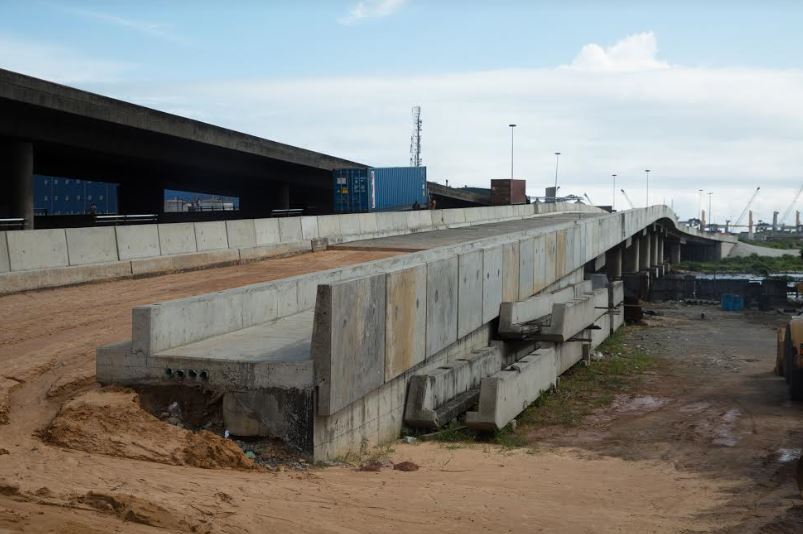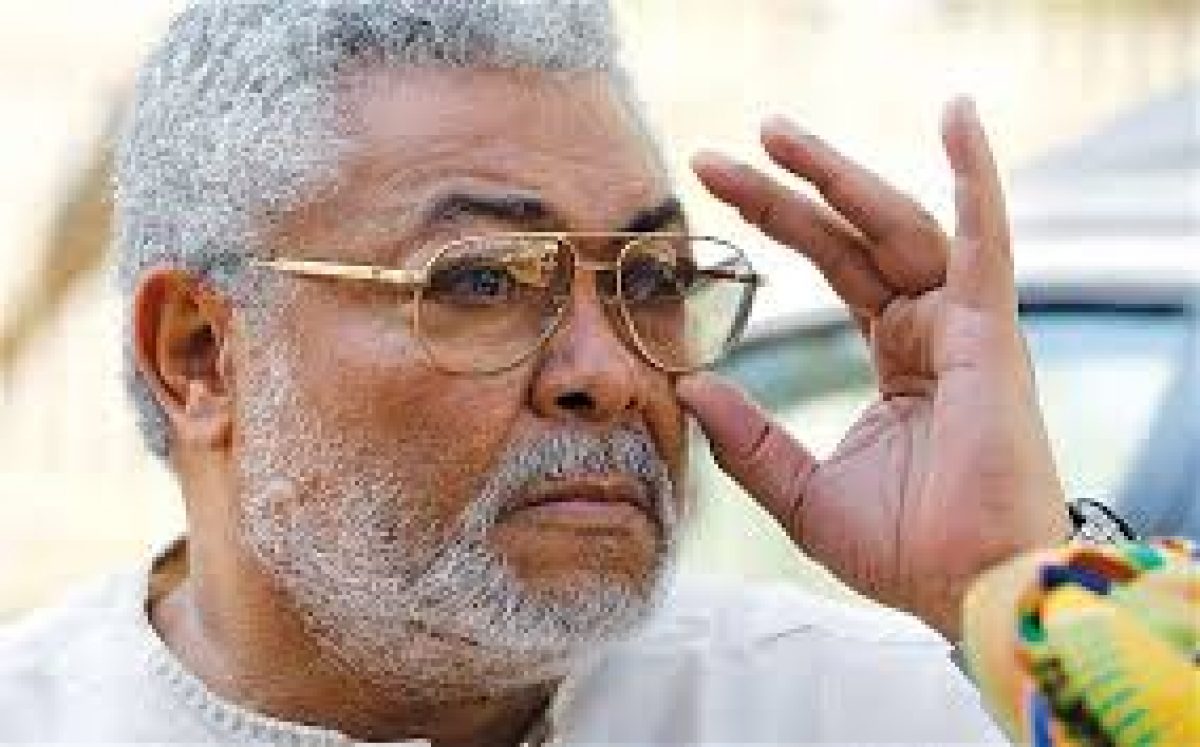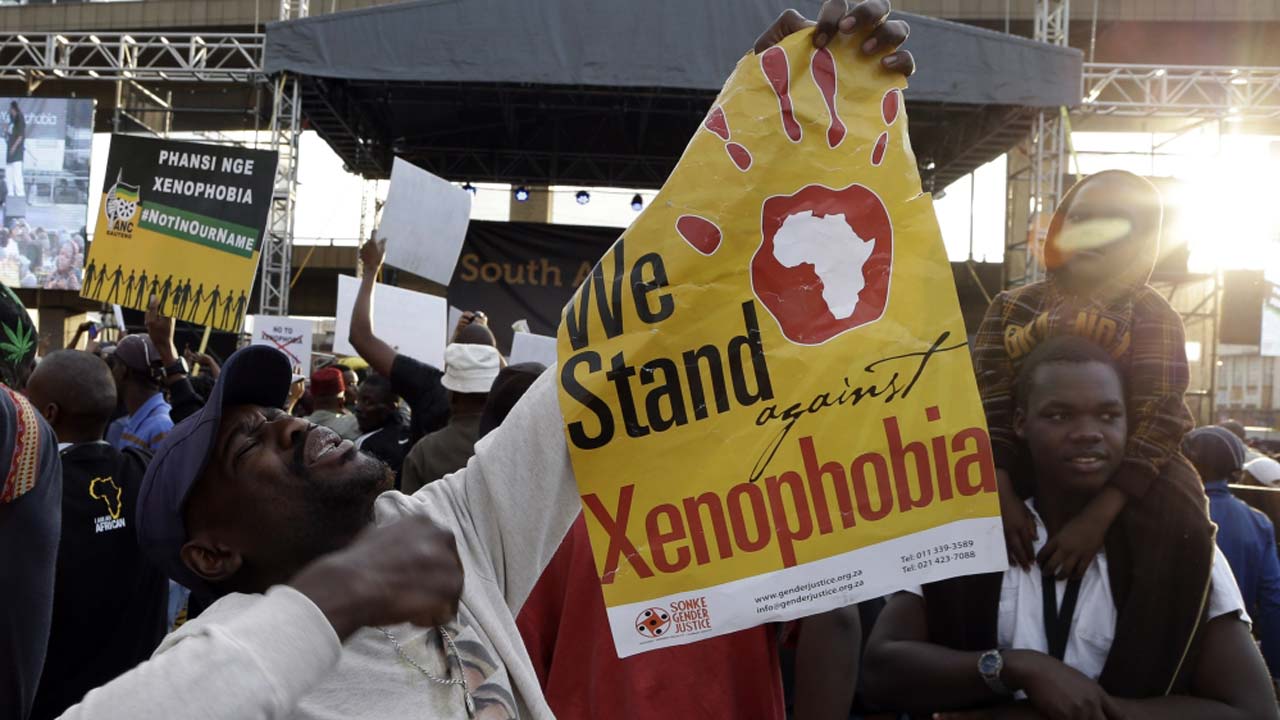A view of the bridge during the inspection of the Rehabilitation of Access Road to Apapa/Tin Can Island Port - NNPC Depot (Atlas Cove) including the construction of a new bridge running parallel to the existing bridge from Liverpool Roundabout across Port Novo Creek in Lagos by the Minister of Power,Works and Housing, Mr Babatunde Fashola SAN on Sunday 11, September 2016.
BY OLATIDE AFOLABI
The construction industry is very volatile and because of this volatility, a small or little change in the scope and sequence of work can lead to greater project setback and the end product barely being achieved. The construction process is a sequence of operations from client brief, initiation, planning, evaluation, monitoring, execution, and completion. Failure to adhere to the plan of work at each stage is vital and might gravitate the project into a mess.
Before delineating what an informal procurement system is, it is pertinent to take a cursory look at what the procurement system entails. The term “procurement system” is an overall process or mechanism of acquiring a newly built asset, when clients who are the major participant in this context, desire to renovate, construct a newly built asset and lack the wherewithal to do so, thereby enlisting the service of professionals in the construction industry to achieve such.
The professionals in the construction industry ranging from architects, engineers, quantity surveyors, builders, land surveyors are entrusted with the responsibilities of providing professional service and delivery of qualitative project or edifice that is healthy, safe, within budget, and completed within the stipulated time.
Over time, there are majorly two procurement tracks or routes, which are FORMAL PROCUREMENT SYSTEM and INFORMAL PROCUREMENT SYSTEM.
The FORMAL PROCUREMENT system is divided into various types. This ranges from but not limited to: Traditional Method, Design and Build Method, Turnkey Method, and Joint Venture and Partnership.
Advertisement
The selection of a formal procurement system is based on the nature, complexity, and time involved for the completion of the project. The type of formal procurement system selected will determine the relationship, line of communication, the flow of information and obligation between the client and each party to the contract.
It is significant to use the formal approach because it offers balance in terms of safe structures, maintainability, value for money and logical distribution of scarce construction resources within each element of the project.
On the other hand, an informal procurement system is simply a process whereby the client engages the service of a draughtsman to produce a design and directly engage the services of tradesmen such as block layers, plumbers, electricians, carpenters, etc, to carry out the construction of the project and monitor the construction process. This practice negates the sequencing and work schedule methodologies in the construction industry. In effect, this may lead to project abandonment, time overrun, cost overrun, unsafe projects and health and safety risks to workers. Ignorance of clients has led to numerous project failures due to the engagement of quacks in the management of construction project development.
Advertisement
It is of utmost importance to go down history lane. About 20-30 years ago, where there was a presence of vocational training centers for artisans, draughtsmen, craftsmen, etc. During this period, the draughtsman, artisans and craftsmen trained by these vocational institutes obtained certifications such as of the City and Guild Institute of Great Britain, trade tested certificate of the ministry of labor and productivity. However, such training is not in existence or short in demand due to advancement.
Ayo Bamisile stated that in Nigeria, even farmers and tailors are competing with the builders under the guise of indigenous contractors; a situation where quackery is being practiced with impunity since there is no law or rules to checkmate them.
The needs of clients are becoming numerous and these involve the use of sophisticated technology and methods in the production and management of building projects in which no tradesmen can provide without the input of the professionals in the industry.
There are many challenges and problems associated with informal procurement system, some of which are: lack of structural integrity and stability of building projects, lack of contractual documentation for reference, project abandonment (time and cost overrun), buildability and maintainability issues, lack of detailed understanding of materials and quality specification, leading to structural defects, difficulty in financial appraisal, absence of health and safety insurance for workers and collapse of buildings.
Advertisement
Understanding the outcome of an informal procurement system should discourage clients who engage services of non-professionals for construction projects.
The Nigerian government who is the highest employer of labour should enact a law that will prevent quackery and unqualified non-professionals to undertake construction and management of construction projects. The Lagos State Government through the Building Control Agency already has such regulations in place: it is, therefore, a matter of urgency for other states to promulgation so as to avoid problems that arise from informal procurement systems. The government should partner with the governing councils of professional bodies in the construction industry such as the Council for the Regulation of Engineering of Nigeria (COREN), Architects Registration Board of Nigeria (ARCON), Quantity Surveyors Registration Board of Nigeria (QSRBN) and Council for Registered Builders of Nigeria (CORBON) in setting out a framework for the regulation of construction in Nigeria.
As the saying goes, the cost of being ignorant is way too high to bear, it is better to be safe than sorry. It is pertinent to engage professionals to avoid losing your money, time and eventually endanger people’s lives.
Quality lies in the details which must not be compromised.
Advertisement
Afolabi is a quantity surveyor. He writes from Lagos.
Advertisement
Views expressed by contributors are strictly personal and not of TheCable.
1 comments







Apt and insightful